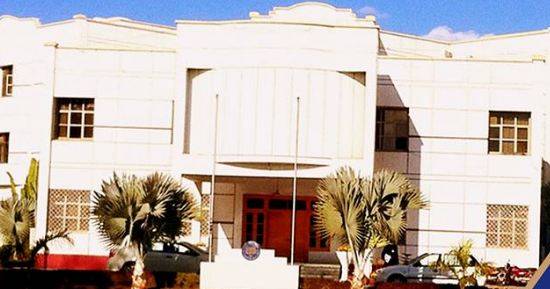Sargodha (PR): The Banking Ombudsman has decided an investment profit claim of Rs 16,982,397 in favour of the University of Sargodha.
The University of Sargodha filed a complaint of less profit paid on its three investments against HBL University of Sargodha Branch. The University invested Rs. 400 million with the Habib Bank Ltd, University of Sargodha Branch on 11.3.2015 on the basis of their offered rate @10.50%/- which was comparatively the highest among all the competitor banks. But, on maturity of this huge investment, Rs30,884,384/- (@7.70%) was transferred by the Bank on account of profit instead of Rs.42,115,068/- (@10.50%) with the contention that their offered rate dated 02.3.2015 was effective for three days but the investment was made after seven days, therefore, negotiated rate was applied. As a result, a loss of Rs. 11,230,684/- was imposed to the public money.
In another investment of Rs. 275 million, the Bank offered the highest profit rate @10.50% on 20.01.2015. The Bank invested Rs.250 million instead of Rs.275/- million on 02.02.2015 with the delay of 12 days. On maturity, Rs.21,125,000/- (8.45%) was transferred by the Bank on account of profit instead of Rs.26,250,000/- (@10.50%) with the justification that offered rate dated 20.1.2015 was effective for three days whereas investment was made with the delay of twelve days. The University was made to suffer a loss of Rs. 5,125,000/-
Similarly, Rs. 125/- Million was invested on the basis of comparative highest profit rate @7.10% per annum offered by Habib Bank Ltd, University of Sargodha Branch on 29.05.2015. On maturity of the investment, profit amounting to Rs.8,272,602/- (@6.60%) was transferred into the University account instead of Rs.88,99,315/- (7.10%), with the justification that the validity of Bank offered rate was three days but the investment was made with the delay of 20 days. Thus, a total loss of Rs. 16,982,397/- was imposed to the public money with the mutual collaboration of the Bank and the then administration of the University.
The Banking Ombudsman, during the hearing of the University complaint in its Lahore Region Office on November 13, 2018, accepted the claim of the University of Sargodha and directed the Habib Bank Ltd, University of Sargodha Branch, to pay Rs. 16.98 million to the University as profit.
According to details, NAB Lahore, in investigation against Dr. Akram Chaudhary, former Vice Chancellor, UoS, and others, is also looking into this embezzlement. This matter was, first of all, pointed out in the HEC Audit Inquiry Report of the two tenures of the former Vice Chancellor.
It is pertinent to mention that all these investments were made during the last year of Dr. Akram Chaudhary. The present administration of the University has actively pursued the case in the Banking Ombudsman’s court to recover Rs. 16.98 million. During the recent drive of recovery of the public money, the University has recovered Rs. 88.25 million from the private campuses of the University. The University expects a recovery of more than Rs.150 million from its private sub-campuses as NAB’s investigation in this regard is underway.
The present decision of the Banking Ombudsman vindicates that embezzlement of public funds was committed and the University was made to suffer financial loss due to mismanagement and corruption. The Bank officials and the University during 2015, in this case, with mutual connivance, deprived the University of millions of rupees.
The Bank officials stated before the Ombudsman that during the days of investment ” the Complainant’s representative used to visit the Branch to collect Debit / Credit advices as well as Account statements but the difference in profit was never ever claimed earlier by the Complainant till the lodgement of this complaint”. Highest profit rates on investments were quoted to exclude other competitor banks but low rates were applied at maturity.
It is also expected that some insiders may also be involved in this burglary. This decision of the court establishes that crime has been committed to impose loss to public money and the proactive pursuance of the University administration has been able to recover damages to the public exchequer.


